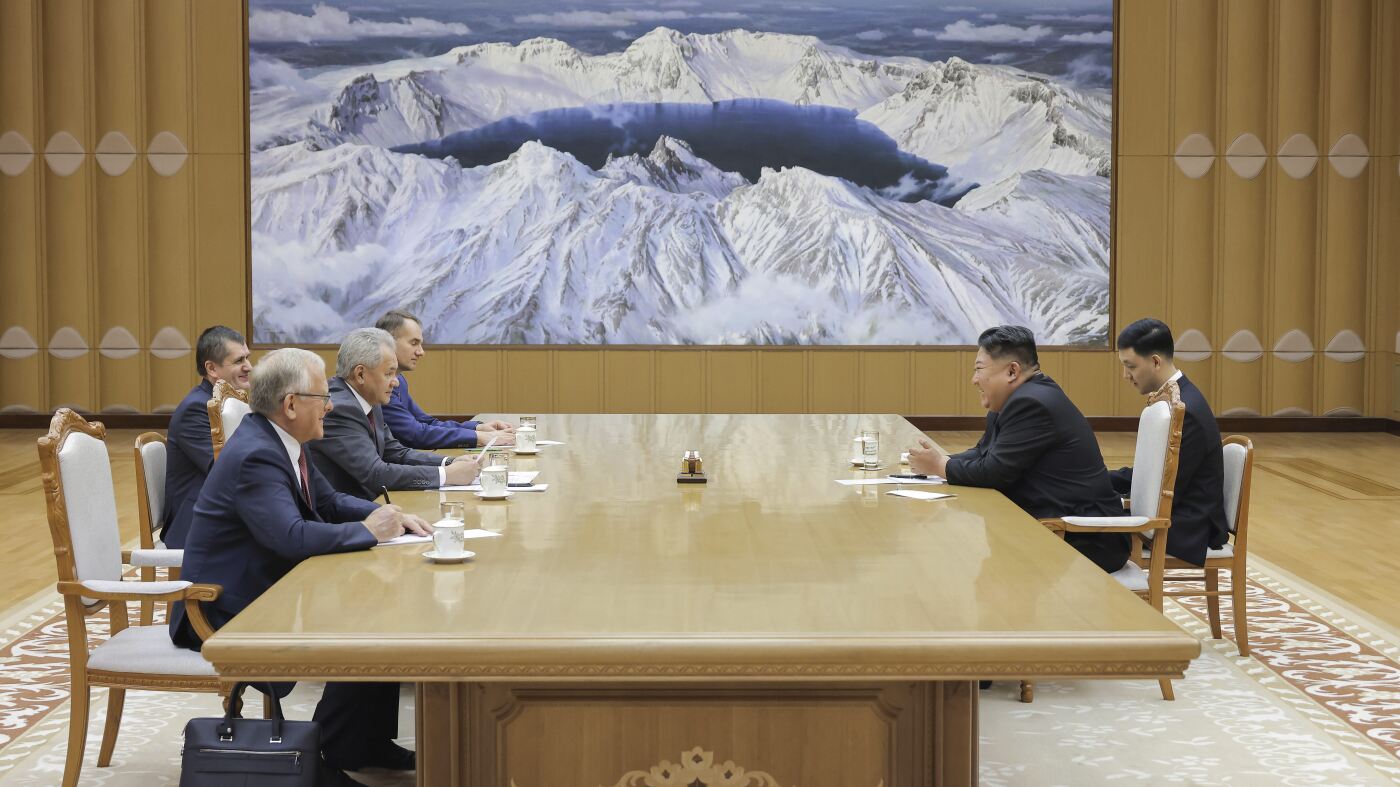A Deepening Alliance: North Korea’s Labor and Military Support for Russia
The geopolitical landscape is witnessing a significant shift as North Korea and Russia strengthen their alliance, moving from cautious engagement to overt cooperation. This evolution is evident in North Korea’s plan to send thousands of military construction workers and deminers to Russia, specifically to the Kursk region. This development, announced by Russian Security Council Secretary Sergei Shoigu during a visit to Pyongyang, marks a new phase in the relationship between the two nations and underscores the expanding support North Korea is providing to Russia’s war efforts in Ukraine.
Expanding Military and Labor Contributions
The recent announcement highlights a substantial commitment of manpower from North Korea. The country intends to dispatch a “division of builders”—approximately 5,000 military construction workers—alongside 1,000 deminers to the Kursk region. This region, which borders Ukraine, has likely suffered damage and requires reconstruction, possibly due to Ukrainian incursions or the strain of supporting military operations. The deployment of military construction workers, rather than civilian laborers, indicates a prioritization of speed and security in the reconstruction process and a willingness by North Korea to directly involve its armed forces in supporting Russian infrastructure.
This commitment is part of a broader pattern of support. Intelligence assessments, particularly from South Korea’s National Intelligence Service (NIS), suggest that North Korea has already sent around 15,000 laborers to Russia under bilateral industrial cooperation programs. Additionally, the initial phase of support involved the provision of thousands of combat troops and a vast amount of conventional weapons to bolster Russia’s war in Ukraine. This escalating pattern demonstrates a clear and deliberate strategy by North Korea to increase its material and personnel support for Russia.
The Kursk Region: A Strategic Focus
The Kursk region’s selection as the primary destination for these workers is strategically significant. Located in western Russia, Kursk shares a border with Ukraine and has been a focal point of cross-border shelling and heightened military activity. Reconstruction efforts in this area are likely aimed at repairing infrastructure damaged by conflict, reinforcing defensive positions, and improving logistical capabilities for Russian forces. The deployment of deminers is particularly crucial, given the potential for landmines and unexploded ordnance in the region, posing a threat to both civilian populations and military operations.
Motivations and Implications
Several factors likely drive North Korea’s willingness to provide such substantial support to Russia. Firstly, Russia represents a crucial economic lifeline for North Korea, especially in the face of stringent international sanctions imposed due to its nuclear weapons program. Russia’s willingness to overlook sanctions and provide economic assistance is a powerful incentive for North Korea to deepen its relationship. Secondly, the alliance offers North Korea a strategic counterweight to the United States and its allies in the region. Russia’s support can be seen as a shield against potential pressure from Washington and Seoul.
The implications of this burgeoning alliance are far-reaching. For Russia, North Korea provides a reliable source of manpower and weaponry, helping to offset losses sustained in Ukraine and circumvent international arms embargoes. For North Korea, the relationship offers economic benefits and a strengthened security guarantee. However, the alliance also carries risks. Increased cooperation could lead to further sanctions against both nations and potentially escalate tensions in the region. The involvement of North Korean military personnel in reconstruction efforts, even if ostensibly civilian in nature, blurs the lines of international law and could be viewed as a violation of UN Security Council resolutions.
The Labor Dynamic: A Modern Form of Exploitation?
The deployment of North Korean laborers raises serious concerns about potential exploitation. Historically, North Korean workers sent abroad have been subjected to harsh working conditions, limited freedoms, and significant financial exploitation, with a substantial portion of their earnings being siphoned off by the North Korean regime. While the current arrangement involves military personnel, the underlying dynamics of control and financial benefit likely remain similar. The workers are essentially deployed as a state-sponsored workforce, with limited agency and significant financial contributions directed back to Pyongyang, bolstering the regime’s coffers. This practice effectively circumvents international sanctions aimed at limiting North Korea’s access to foreign currency.
A Shifting Geopolitical Landscape
The deepening alliance between North Korea and Russia is reshaping the geopolitical landscape in Northeast Asia and beyond. It represents a challenge to the existing international order and underscores the growing willingness of both nations to defy international norms and pursue their strategic interests. The situation demands careful monitoring and a coordinated response from the international community to address the potential risks and mitigate the negative consequences of this evolving partnership. The continued flow of North Korean labor and military support to Russia is not merely a bilateral issue; it is a symptom of a broader trend towards increased geopolitical fragmentation and a challenge to the principles of international cooperation and security.
A Future Defined by Cooperation?
The current trajectory suggests a future characterized by increasingly close cooperation between North Korea and Russia. This partnership is likely to extend beyond military and labor exchanges, potentially encompassing increased trade, technological cooperation, and diplomatic coordination. The long-term consequences of this alliance remain uncertain, but it is clear that the relationship will play a significant role in shaping the future of regional and global security. The willingness of both nations to prioritize their strategic interests over international norms signals a potentially destabilizing trend that requires sustained attention and proactive engagement from the international community.
The evolving alliance between North Korea and Russia is a complex and multifaceted issue that demands a nuanced understanding. As the geopolitical landscape continues to shift, it is crucial for the international community to remain vigilant and responsive to the challenges and opportunities presented by this deepening relationship. The future of regional and global security hangs in the balance, and the actions taken today will shape the world of tomorrow.

